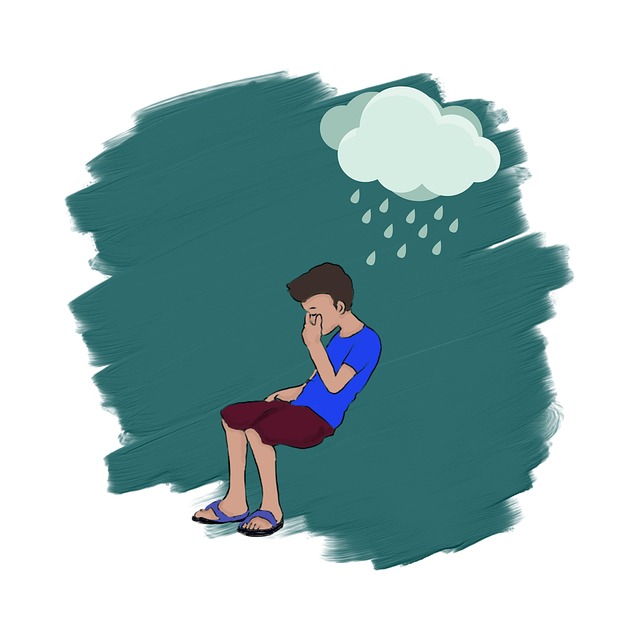Mental health professionals specializing in Lone Tree Oppositional Defiance Disorder (ODD) face unique challenges requiring robust risk management strategies for burnout prevention and patient care quality. These include self-care, clear boundaries, and resilience techniques. Effective ODD treatment combines structured parenting skills training, cognitive-behavioral therapy, and social skills groups, with regular monitoring and risk assessment. Integrating clinical and operational strategies, like stigma reduction efforts, emotional intelligence training, and efficient communication channels, ensures a safe, supportive environment for LTODD clients. Adaptability through continuous reassessments and staying informed is crucial for delivering quality care aligned with Mental Health Policy Analysis and Advocacy goals.
“Risk management is an essential aspect of mental health practice, especially when addressing complex conditions like Lone Tree Oppositional Defiance Disorder (ODD) therapy. This article guides mental health professionals through a comprehensive approach to risk assessment and mitigation. We explore key strategies for identifying risks unique to ODD therapy, emphasizing the importance of proactive planning.
By delving into these sections—Understanding Risk Management, Identifying Risks, Developing a Plan, and Continuous Evaluation—professionals can enhance patient safety and outcomes in Lone Tree ODD therapy.”
- Understanding Risk Management for Mental Health Professionals
- Identifying Potential Risks in Lone Tree Oppositional Defiance Disorder (ODD) Therapy
- Developing a Comprehensive Risk Mitigation Plan
- Continuous Evaluation and Adaptation in Mental Health Practice
Understanding Risk Management for Mental Health Professionals

Mental health professionals, much like their medical counterparts, face a unique set of challenges that can lead to stress, anxiety, and even burnout. Understanding risk management in this context is crucial for maintaining a healthy work-life balance and ensuring effective patient care. Risk management for mental health therapists involves recognizing and mitigating potential hazards within the therapeutic environment, including managing intense emotions from both patients and oneself.
For therapists specializing in disorders like Oppositional Defiance Disorder (ODD) in Lone Tree, effective risk management strategies are essential. This may include implementing self-care practices to prevent burnout, setting clear boundaries, and utilizing techniques to enhance self-esteem and resilience. By prioritizing their own well-being, mental health professionals can better support their patients’ journeys towards healing, ensuring they remain engaged, compassionate, and adept at navigating complex therapeutic situations.
Identifying Potential Risks in Lone Tree Oppositional Defiance Disorder (ODD) Therapy

Treating Lone Tree Oppositional Defiance Disorder (ODD) requires mental health professionals to be vigilant in identifying potential risks within their practice settings. Given the nature of ODD, characterized by frequent arguments, defiance, and hostile behavior, therapists must conduct thorough risk assessments to ensure patient safety and maintain a therapeutic environment. A comprehensive risk management plan for ODD therapy involves evaluating various factors such as the client’s history of aggression, family dynamics, and co-occurring disorders.
Mental health professionals should consider implementing specific strategies tailored to ODD, including structured parenting skills training, cognitive-behavioral therapy, and social skills groups. Moreover, regular monitoring and ongoing risk assessment are crucial throughout the therapeutic process, as behaviors can fluctuate. Integrating these practices into mental wellness coaching programs development ensures that therapists are well-equipped to handle potential challenges, fostering a safe and supportive atmosphere for clients with ODD. This proactive approach aligns with the broader goals of Mental Health Policy Analysis and Advocacy, promoting effective interventions and positive outcomes for individuals struggling with this disorder.
Developing a Comprehensive Risk Mitigation Plan

In developing a comprehensive risk mitigation plan for mental health professionals, especially those treating clients with Lone Tree Oppositional Defiance Disorder (LTODD), it’s crucial to integrate strategies that address both clinical and operational risks. This involves cultivating a robust Mental Illness Stigma Reduction Efforts framework to create a non-judgmental environment that encourages open dialogue and fosters trust. Emotional intelligence and social skills training play a pivotal role in this, equipping practitioners with the tools to navigate complex client interactions effectively.
The plan should also delineate clear protocols for managing crisis situations, ensuring all staff are trained in de-escalation techniques. Regular risk assessments, informed by ongoing professional development, help identify emerging issues early on. Furthermore, establishing robust communication channels and backup systems ensures continuity of care, minimizing potential risks associated with information gaps or unavailability.
Continuous Evaluation and Adaptation in Mental Health Practice

Mental health professionals must embrace a culture of continuous evaluation and adaptation to effectively manage risks and deliver quality care. The dynamic nature of client needs and mental health landscapes requires practitioners to regularly reassess their approaches, strategies, and interventions. For instance, when treating conditions like Lone Tree Oppositional Defiance Disorder (LTODD), therapists must remain agile. What works in one session might not be effective the next, so regular monitoring and adjustments are key.
By incorporating practices such as Mindfulness Meditation into their routines, professionals can enhance self-awareness and client relationships. This allows for more nuanced understanding of individual needs, enabling practitioners to adapt techniques on the fly. Additionally, Community Outreach Program Implementation and effective Communication Strategies play a pivotal role in staying abreast of new research and treatment methods. Such adaptability ensures that mental health professionals remain at the forefront of their field, providing the best possible care to those they serve.
Mental health professionals play a crucial role in managing risks associated with various therapeutic practices, especially when treating complex conditions like Lone Tree Oppositional Defiance Disorder (ODD). By identifying potential risks, developing robust risk mitigation plans, and continually evaluating these strategies, therapists can ensure safer and more effective treatment outcomes. A comprehensive approach to risk management is essential for maintaining a healthy work environment and fostering positive client relationships, ultimately revolutionizing the practice of ODD therapy.














